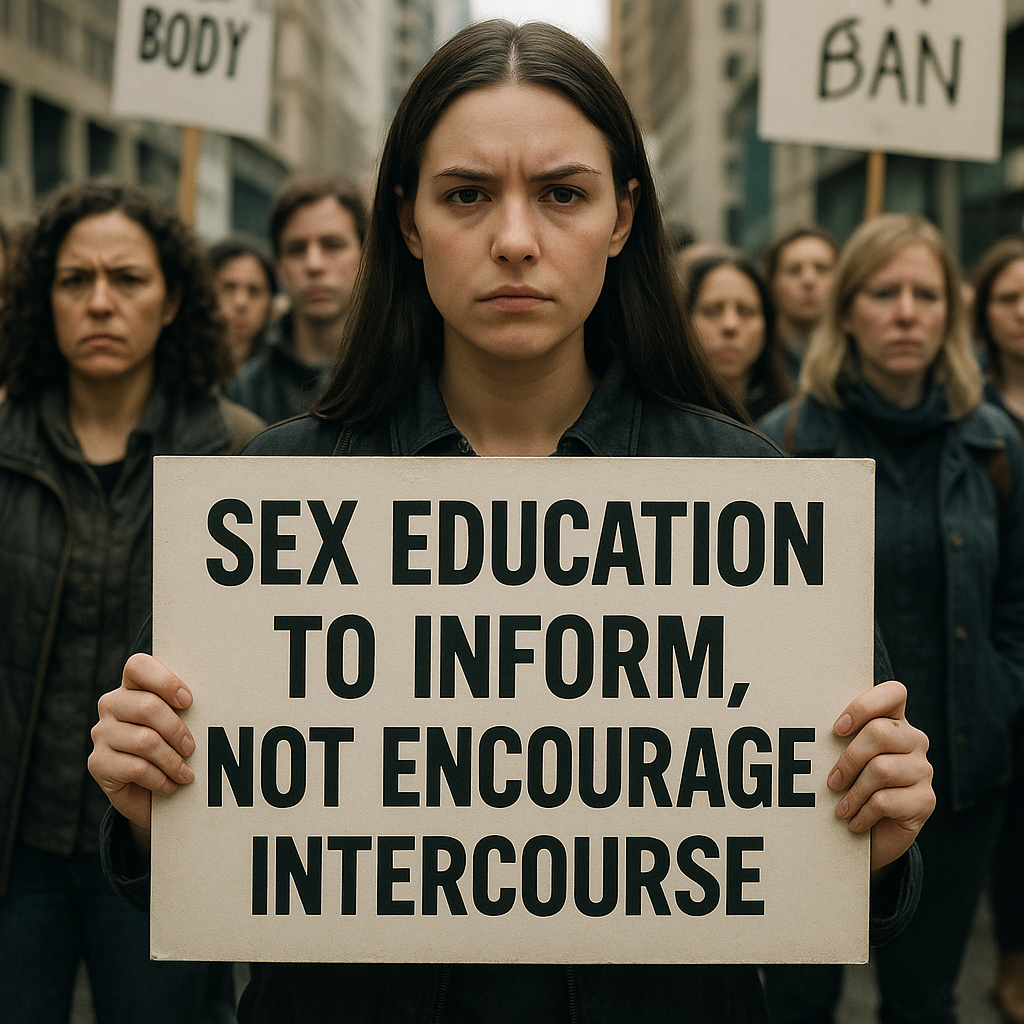
Sex education has a clear purpose. It is meant to inform young people about the biological, emotional, and social realities of sex. Topics like pregnancy, contraception, sexually transmitted infections, consent, and personal boundaries are all important. No responsible parent disagrees with the need for students to understand these things. The issue is not with sex education itself. The issue is how that education is framed.
When done right, sex education gives students the tools they need to make informed decisions. It teaches them how to protect themselves and understand the consequences of sexual activity. But in some classrooms and curriculums today, the message is shifting from protection and responsibility to exploration and celebration. That is not education. That is activism.
The Glorification of Sexual Identity and Activity
There is a difference between saying “you should know the risks of sex” and saying “you should explore sex.” Some educational programs now go beyond informing students and start encouraging them to explore their sexuality at younger ages. They treat sexual activity as a rite of passage rather than a personal, serious decision.
When schools begin to promote the idea that experimenting with sex, especially same-sex activity, is part of growing up, it crosses a line. It suggests that acting on every impulse is healthy. That is not a balanced message. Children deserve better than that.
Encouraging kids to try things just to discover who they are opens the door to confusion, pressure, and risky decisions. Telling a child that it is normal to explore sexual behavior at a young age, instead of urging caution and patience, ignores the emotional weight that comes with those experiences.
Children Are Not Ready for Adult Decisions
Parents know the truth. Kids do things before they are ready. That is why parents guide them, protect them, and put boundaries in place. When schools step in and suggest that sex is not just normal but something to pursue as part of personal development, they are pushing children into adult decisions too soon.
Saying they are going to do it anyway is not a reason to give the green light. It is a reason to teach responsibility. The goal should be to help kids delay, not to hand them a pass. Giving young students the message that sexual behavior is not only acceptable but encouraged sends them in the wrong direction.
Some programs even celebrate the idea of early sexual experiences. That is not education. That is ideology. And it sends a dangerous message to kids who are already surrounded by pressure from media, peers, and the internet.
Parents Must Be in Control
The school’s job is to educate. The parent’s job is to raise. These roles are not interchangeable. Parents should always have a say in what their children are taught about sex. No curriculum should push a message that overrides the values taught at home.
That does not mean shielding children from reality. It means recognizing that children mature at different rates. It means understanding that pushing them to explore sexual identity and activity before they are ready can lead to harm, not empowerment.
Teach Responsibility, Not Indulgence
It is time to return to the purpose of sex education: to inform, to protect, and to guide. Teaching children about anatomy, consent, contraception, and boundaries is good. But glorifying early sexual activity or identity exploration is not. It opens the door to confusion, guilt, pressure, and regret.
Children are not adults. They need clarity, not slogans. They need facts, not political agendas. They need boundaries, not celebrations of behavior they may not understand.
Let schools focus on protecting kids with knowledge, not promoting sexual behavior as a badge of identity or progress.
